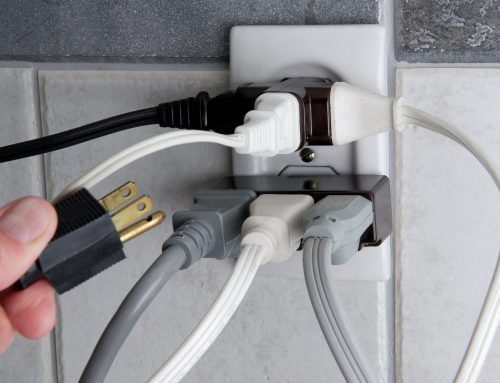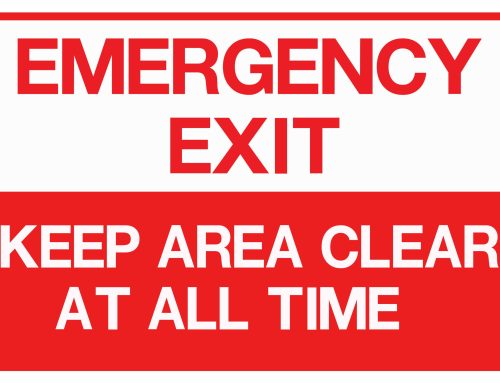Fire safety protocol is essential to maintaining a safe and comfortable workplace. All fire protection systems are required to be inspected at least on an annual basis according NFPA standards and local fire codes. Many systems may even require monthly inspections and maintenance to ensure proper functionality and make necessary repairs.
Whether you are a small church or a 500,000 square foot manufacturing facility, your systems must be inspected regularly. If you’ve fallen behind on inspections as a result of the Coronavirus pandemic, or for any other reason, you are likely out of compliance with local fire codes and in danger of serious consequences as a result. There are a number of dangerous repercussions in missing these critical inspections.
How often should my fire protection system be inspected?
A complete fire protection system may include a fire sprinkler system, fire suppression system, and fire alarm system depending on your facility and industry. Each system has varying inspection requirements to ensure proper functionality.
A fire protection professional should be conducting your quarterly and annual inspections. The building owner or facility manager is in charge of conducting more frequent visual checks.
- Fire sprinkler systems:
- Annual inspection of the hanger/seismic bracing, pipes and fittings, information signage, and spare sprinklers
- Quarterly inspection of water flow alarm devices
- Monthly visual inspection of gauges
These maintenance standards are outlined in NFPA 25, the Standard for the Inspection, Testing, and Maintenance of Water-Based Fire Protection Systems.
- Fire suppression systems:
- Every 6 years dry chemical extinguishers with refillable containers are emptied and maintained, with a hydrostatic test every 12 years
- Semi annual inspection of clean agent systems
- Every 6 months kitchen suppression system should be inspected
NFPA 2001 is the Standard on Clean Agent Fire Extinguishing Systems and contains requirements for total flooding and local application clean agent systems. NFPA 17 is the Standard for Dry Chemical Extinguishing Systems, which includes kitchen hood systems.
- Fire alarm systems:
- Weekly visual inspections of control panels and equipment
- Annual inspection of control panel and all audible alarms
- Semi-annual or quarterly inspection of all initiating devices (i.e. pull stations) and batteries
NFPA 72 is the Standard for National Fire Alarm and Signaling Code and provides requirements for the design, application, installation, performance, testing and maintenance of protective signaling systems and their components.
What could go wrong?
Your building’s fire sprinkler system is incredibly important should a fire break out. The ability for water to flow through the pipes and out of the nozzle heads is imperative for the extinguishment of fire. Blocked or obstructed pipes as a result of corrosion or accumulation of sediment can compromise a fire sprinkler system. You can’t see the inside of the piping system of your building’s fire sprinkler system. The only way to ensure proper flow of water through these pipes is an internal pipe inspection, which should be conducted every five years. This is only one instance of what could go wrong with your fire sprinkler system should you miss annual or regular inspections.
A fire suppression system is also a critical component of your building’s life and safety protocol to prevent the spread and destruction of fire. Depending on your facility, you may have either a dry chemical or clean agent system. Through regular testing and inspection, a fire protection professional can ensure proper pressurization in the event of a fire. Other issues may be a damaged container/cylinder or damaged hoses. Many issues can be identified visually, but others cannot. This is why hydrostatic testing for gaseous fire suppression systems is essential. During hydrostatic testing, the hose is disconnected from the system and filled with water and subjected to 1.5 times the container pressure for one minute. The tech then watches for any leaking or distortion to assess if the hose assembly can maintain adequate pressure without damage.
Finally, your building’s fire alarm system is your lifeline to first responders and means to evacuate all occupants from your building. The first step is to make sure your fire alarm system is installed by licensed professionals. Improper installation can lead to a host of problems that can be avoided. If you’ve had a professional installation of your system, yet neglect regular inspections, your system may not be able to offer you the necessary protection. For example, something as simple as a dead battery in a control panel can affect the entire system: smoke isn’t detected, initiating devices are not notified, and no one knows a fire is roaring away (especially if the fire occurs overnight like so many do).
Insurance claim disputes or denial
Missing required inspections can also lead to a legal nightmare, or worse. Most property insurance carriers will require a copy of the inspection reports after each inspection. If they find out you are missing required inspections, they have the legal right to dispute or deny claims. Legal ramifications will follow should someone get injured or killed with a proximate cause related to the fire protection system.
Not sure of the requirements of your property insurance carrier? Contact them as soon as possible to make sure they have the correct systems listed for your building and are in line with your current inspection schedule. Your local fire protection company can also help you provide a detailed description of your building’s fire protection system.
Possible business closure
If you view fire protection system inspections as a hassle, you may want to reevaluate your priorities. Most fire protection companies can schedule inspections at times most convenient to you and your business hours. The downtime required for fire protection system inspections is minimal at best and can save lives. These inspections will also ensure the continuity of your business.
According to the Federal Emergency Management Agency (FEMA), 40 percent of businesses do not reopen after a disaster like a fire. In addition, another 25 percent fail within one year of reopening. Another study conducted by the United States Small Business Administration found that over 90 percent of companies fail within two years of being affected by a disaster.
Fire Systems, Inc.
Fire Systems, Inc. has been a part of the Atlanta community for over 30 years. Ingratiated in the community for which we serve, we hold a core mission to be the only fire protection company you will ever need. We do it all, from fire sprinkler to suppression, vehicle systems to kitchen hoods.
We also make it easy for you to stay in compliance by offering:
- Fully trained and certified inspectors
- In-house inspections that do not involve subcontractors
- Ability to ensure all fire hazard types are adequately protected, with suggestions if additional protection is needed
- Electronic copy of all of your inspection reports on file
- Automatic reminders for required inspections
Visit our website or call 770-333-7979 for more information.






